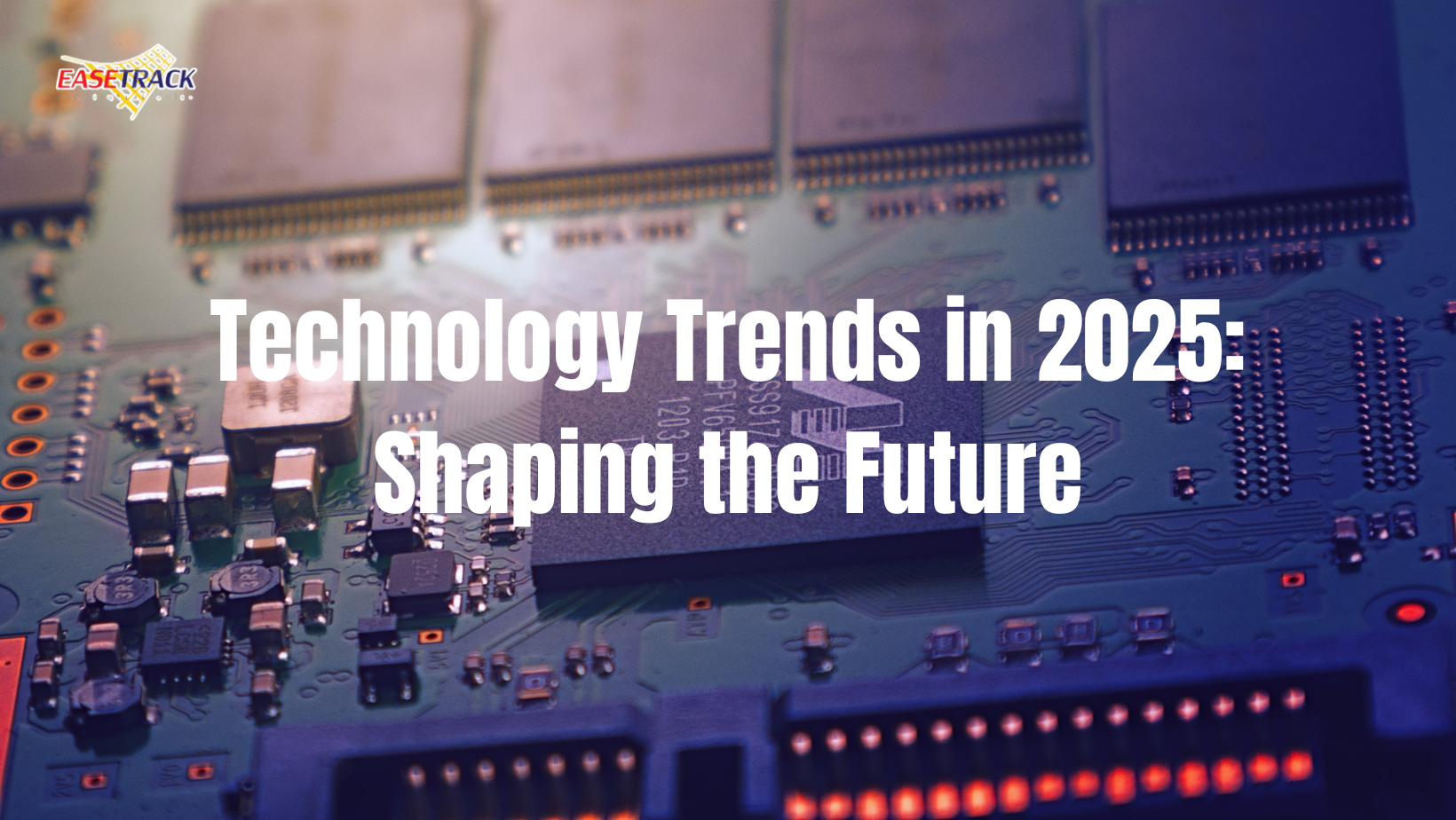
Technology Trends in 2025: Shaping the Future
As we move toward 2025, technology continues to evolve at an unprecedented pace, reshaping industries, lifestyles, and global economies. Emerging innovations are no longer confined to science fiction; they are becoming integral to our daily lives, driving efficiency, connectivity, and sustainability. This article explores the most anticipated technological advancements in 2025 and their transformative impacts.
1. Artificial Intelligence and Machine Learning: Becoming Mainstream
By 2025, Artificial Intelligence (AI) and Machine Learning (ML) will become deeply embedded in various industries. From healthcare and finance to transportation and retail, these technologies will:
- Enhance Personalization: AI-driven algorithms will provide hyper-personalized experiences in e-commerce, entertainment, and education.
- Automate Processes: Robots and AI systems will handle repetitive tasks, allowing human workers to focus on creative and strategic roles.
- Improve Decision-Making: Businesses will use predictive analytics to make data-driven decisions, mitigating risks and optimizing operations.
Notable Development: AI will contribute significantly to scientific research, accelerating discoveries in areas like climate change and medicine.
2. Quantum Computing: Unlocking New Frontiers
Quantum computing, once limited to theoretical research, will begin addressing complex problems beyond the capabilities of classical computers. In 2025, we can expect:
- Breakthroughs in Drug Discovery: Quantum simulations will accelerate the identification of new molecules for treating diseases.
- Advancements in Cryptography: Enhanced encryption methods will safeguard sensitive information against cyber threats.
- Optimization in Logistics: Complex logistical challenges in supply chains will be resolved faster and more efficiently.
3. The Rise of 6G Networks
While 5G is still being rolled out in many parts of the world, 6G networks are on the horizon, promising speeds up to 100 times faster. In 2025, early implementations of 6G will:
- Support immersive technologies like AR, VR, and holographic communication with seamless connectivity.
- Enable smart city infrastructures to operate autonomously with real-time data sharing.
- Expand the possibilities for autonomous vehicles, drones, and IoT devices, fostering a more interconnected world.
4. Sustainable Technologies: Driving Green Innovation
Sustainability will remain a priority in 2025, leading to the development of eco-friendly technologies:
- Green Energy Solutions: Innovations in solar, wind, and hydrogen energy will reduce reliance on fossil fuels.
- Circular Economy Practices: Smart recycling technologies, including AI-powered sorting systems, will minimize waste.
- Energy-Efficient Devices: IoT-enabled devices will optimize energy usage in homes and industries.
5. The Expansion of the Metaverse
The metaverse, a virtual world blending physical and digital realities, will see significant growth. In 2025, it is expected to revolutionize:
- Remote Work: Virtual offices and meeting spaces will offer a more interactive alternative to traditional video conferencing.
- Entertainment and Gaming: Immersive experiences will redefine digital entertainment, from concerts to gaming tournaments.
- Retail and E-Commerce: Virtual shopping environments will provide interactive and personalized experiences for consumers.
6. Biotech and Health Tech Innovations
The integration of technology and biology will lead to breakthroughs in healthcare, including:
- Personalized Medicine: AI and genomic sequencing will enable treatments tailored to individual patients.
- Wearable Health Devices: Advanced wearables will monitor vital signs in real-time, predicting health issues before they arise.
- Robotic Surgery: Precision robotic systems will enhance surgical outcomes and minimize recovery times.
7. Autonomous Systems: From Vehicles to Robotics
Autonomous technology will continue its evolution, with significant advancements in:
- Self-Driving Cars: Enhanced safety features and AI-driven navigation systems will make autonomous vehicles more accessible.
- Delivery Drones: Drones will become a staple in logistics, delivering goods faster and more sustainably.
- Industrial Robots: Factories will deploy robots for tasks requiring precision, reducing costs and increasing productivity.
8. Blockchain Beyond Cryptocurrency
Blockchain technology will extend beyond digital currencies, driving innovation in various sectors:
- Supply Chain Transparency: Businesses will use blockchain to track products from origin to consumer, ensuring ethical practices.
- Decentralized Finance (DeFi): Financial systems will become more accessible, enabling secure and efficient transactions.
- Digital Identity: Blockchain will provide secure, tamper-proof digital identity systems for individuals and organizations.
9. Space Exploration and Commercialization
The space industry will expand further, with 2025 being a pivotal year for exploration and commercialization:
- Moon Missions: Governments and private companies will focus on lunar exploration and resource utilization.
- Space Tourism: Commercial flights to space will become more affordable, albeit still a luxury.
- Satellite Deployment: More satellites will enhance global communication and weather monitoring systems.
10. Ethical and Regulatory Challenges
With rapid technological advancements, ethical and regulatory issues will take center stage:
- AI Ethics: Striking a balance between innovation and ethical use of AI will be critical.
- Data Privacy: Governments and businesses must address privacy concerns associated with extensive data collection.
- Digital Divide: Efforts will be needed to ensure equitable access to technology globally.
Conclusion
The year 2025 will mark a new era in technological innovation, driven by advancements in AI, quantum computing, connectivity, and sustainability. While these technologies promise transformative benefits, they also pose challenges that require careful consideration. Businesses and individuals that adapt to and embrace these changes will be well-positioned to thrive in the fast-evolving digital landscape.
